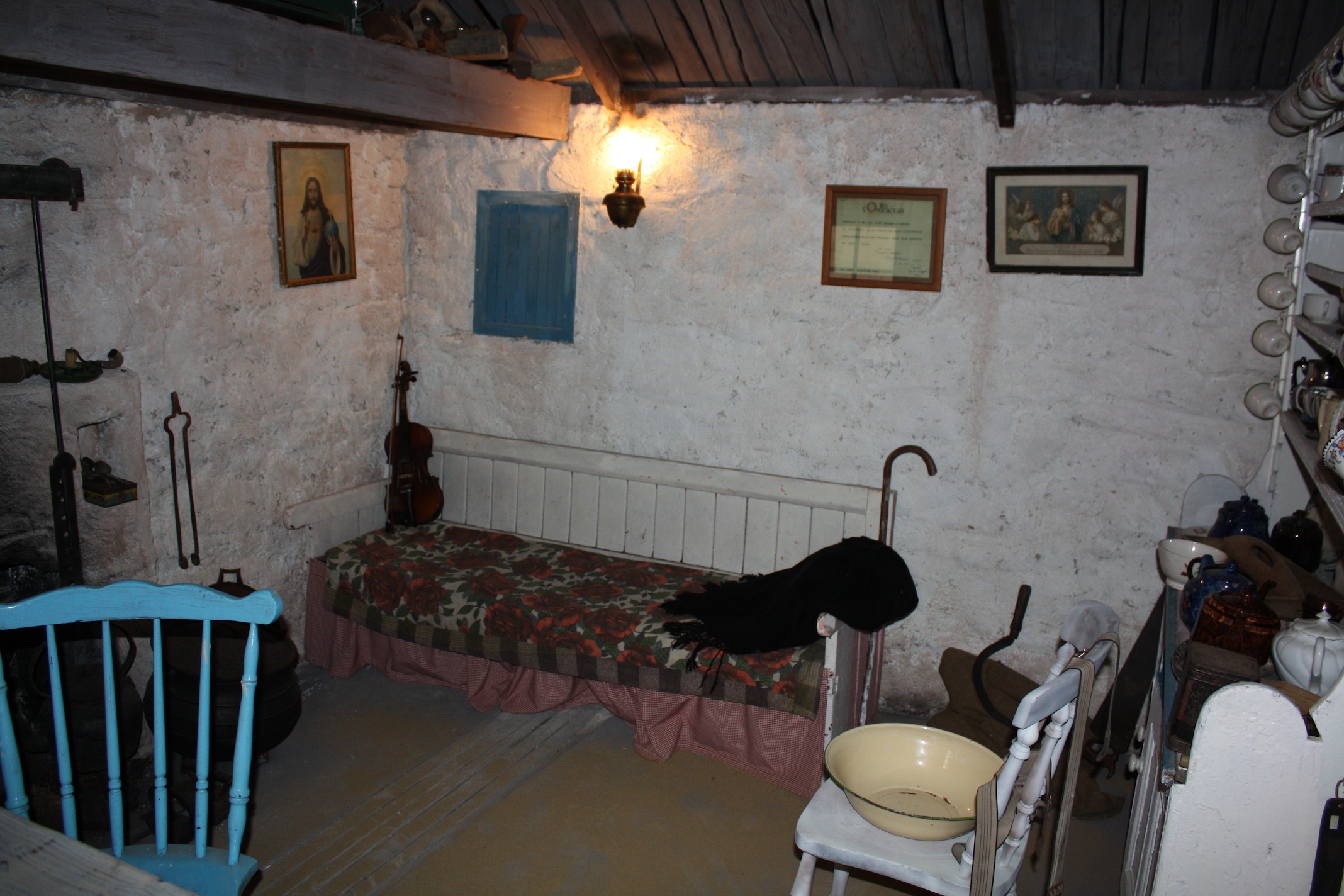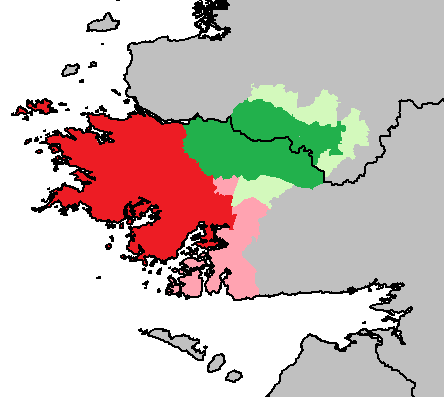|
Muiris Ó Súilleabháin
Muiris Ó Súilleabháin (; 19 February 1904 – 25 June 1950), anglicised as Maurice O'Sullivan, was an Irish author famous for his Irish language memoir of growing up on the Great Blasket Island and in Dingle, County Kerry, off the western coast of Ireland. It is his unique published work. Writings (''Twenty Years a-Growing'') was published in Irish and English in 1933. As one of the last areas of Ireland in which the Irish language and culture had continued unchanged, the Great Blasket Island was a place of enormous interest to those seeking traditional Irish narratives. ÓSúilleabháin was persuaded to write his memoirs by George Derwent Thomson, George Thomson, a linguist and professor of Greek who had come to the island to hear and learn the Irish language. It was Thomson who encouraged him to join the Garda Síochána, Gardaí (police) rather than emigrate to America as most of the young people of the island did. Thomson edited and assembled the memoir, and arranged fo ... [...More Info...] [...Related Items...] OR: [Wikipedia] [Google] [Baidu] |
Great Blasket Island
The Great Blasket () is the principal island of the Blasket Islands, Blaskets, County Kerry, Republic of Ireland, Ireland. It was home to a small fishing community of Irish speakers until the island was abandoned in 1953 when living there became unsustainable. Geography The island lies approximately two kilometres from the mainland at Dunmore Head, and extends six kilometres to the southwest, rising to at its highest point (An Cró Mór). The nearest mainland town is Dunquin; a ferry to the island operates from a nearby pier during summer months. Garraun Point at has been incorrectly cited as being the most westerly point of the Irish mainland, but Extreme points of Ireland, this is Dunmore Head. At longitude 10° 39.7', Tearaght Island is the westernmost of the Blaskets, and thus the most westerly point of the republic of Ireland. History The Great Blasket has been inhabited on and off for centuries. The earliest known reference to people living on the island was at the ... [...More Info...] [...Related Items...] OR: [Wikipedia] [Google] [Baidu] |
Dublin
Dublin is the capital and largest city of Republic of Ireland, Ireland. Situated on Dublin Bay at the mouth of the River Liffey, it is in the Provinces of Ireland, province of Leinster, and is bordered on the south by the Dublin Mountains, part of the Wicklow Mountains range. Dublin is the largest city by population on the island of Ireland; at the 2022 census of Ireland, 2022 census, the city council area had a population of 592,713, while the city including suburbs had a population of 1,263,219, County Dublin had a population of 1,501,500. Various definitions of a metropolitan Greater Dublin Area exist. A settlement was established in the area by the Gaels during or before the 7th century, followed by the Vikings. As the Kingdom of Dublin grew, it became Ireland's principal settlement by the 12th century Anglo-Norman invasion of Ireland. The city expanded rapidly from the 17th century and was briefly the second largest in the British Empire and sixth largest in Western Europ ... [...More Info...] [...Related Items...] OR: [Wikipedia] [Google] [Baidu] |
Garda Síochána Officers
Garda may refer to: * Garda Síochána, the police and security service of Ireland * Garda National Surveillance Unit, the domestic intelligence agency of Ireland * GardaWorld, a security and protection company headquartered in Montreal, Canada * Garda, Veneto, a commune on the shores of the Italian Lake Garda in the province of Verona * Garda, Gotland, alternative name for Garde, a settlement on the Swedish island of Gotland * Garda Financiară, a former Romanian control and tax law-enforcement agency * Garda hitch, a knot used in rock climbing and rescue * Lake Garda, a lake in northern Italy * Idegarda Oliveira, an Angolan singer See also * Gârda (other) * Garde (other) * Guarda (other) * Guardia (other) * Guard (other) Guard or guards may refer to: Professional occupations * Bodyguard, who protects an individual from personal assault * Crossing guard, who stops traffic so pedestrians can cross the street * Lifeguard, who resc ... [...More Info...] [...Related Items...] OR: [Wikipedia] [Google] [Baidu] |
Blasket Islands
The Blasket Islands () are an uninhabited group of islands off the west coast of the Dingle Peninsula in County Kerry, Ireland. The last island to hold a significant population, Great Blasket Island, was abandoned in 1954 due to population decline and is best known for a number of Irish language writers who vividly described their way of life and who kept alive old Irish folk tales of the land. Name The etymology of the name of the islands is uncertain, but it may be Old Norse in origin. It may have come from the word ''brasker'' meaning sharp reef of rock or dangerous place. The islands have also been called Ferriter's Islands. Topographer Charles Smith (topographer), Charles Smith referred to Great Blasket, the largest of the group of islands, as Inishmore. History The earliest known reference to the habitation of the islands is from the late 16th century. However, the Norman-Irish (Ferriter) family who rented the islands from the Earl of Desmond since maintained a castl ... [...More Info...] [...Related Items...] OR: [Wikipedia] [Google] [Baidu] |
1950 Deaths
Events January * January 1 – The International Police Association (IPA) – the largest police organization in the world – is formed. * January 5 – 1950 Sverdlovsk plane crash, Sverdlovsk plane crash: ''Aeroflot'' Lisunov Li-2 crashes in a snowstorm. All 19 aboard are killed, including almost the entire national ice hockey team (VVS Moscow) of the Soviet Air Force – 11 players, as well as a team doctor and a masseur. * January 6 – The UK recognizes the People's Republic of China; the Republic of China severs diplomatic relations with Britain in response. * January 7 – A fire in the St Elizabeth's Ward of Mercy Hospital in Davenport, Iowa, United States, kills 41 patients. * January 9 – The Israeli government recognizes the People's Republic of China. * January 12 – Submarine collides with Sweden, Swedish oil tanker ''Divina'' in the Thames Estuary and sinks; 64 die. * January 13 – Finland forms diplomatic relations with the People's Republic of Chin ... [...More Info...] [...Related Items...] OR: [Wikipedia] [Google] [Baidu] |
1904 Births
Events January * January 7 – The distress signal ''CQD'' is established, only to be replaced 2 years later by ''SOS''. * January 8 – The Blackstone Library is dedicated, marking the beginning of the Chicago Public Library system. * January 12 – The Herero Wars in German South West Africa begin. * January 17 – Anton Chekhov's last play, ''The Cherry Orchard'' («Вишнëвый сад», ''Vishnevyi sad''), opens at the Moscow Art Theatre directed by Constantin Stanislavski, 6 month's before the author's death. * January 23 – The Ålesund fire destroys most buildings in the town of Ålesund, Norway, leaving about 10,000 people without shelter. * January 25 – Halford Mackinder presents a paper on "The Geographical Pivot of History" to the Royal Geographical Society of London in which he formulates the Heartland Theory, originating the study of geopolitics. February * February 7 – The Great Baltimore Fire in Baltimore, Maryland, destroys over 1,500 build ... [...More Info...] [...Related Items...] OR: [Wikipedia] [Google] [Baidu] |
Raymond Queneau
Raymond Auguste Queneau (; ; 21 February 1903 – 25 October 1976) was a French novelist, poet, critic, editor and co-founder and president of Oulipo (), notable for his wit and cynical humour. Biography Queneau, the only child of Auguste Queneau and Joséphine Mignot, was born at 47, rue Thiers (now Avenue René-Coty), Le Havre, Seine-Inférieure. He received his middle name Auguste as a patronymic. After studying in Le Havre, Queneau moved to Paris in 1920 and received his first baccalauréat in 1925 for philosophy from the University of Paris. Queneau performed military service as a '' zouave'' in Algeria and Morocco during the years 1925–26. From the 1920s through 1930s, Queneau took odd jobs for income, working as a bank teller, tutor, translator and hackwriting in a column entitled, ('Do you know Paris?') for the daily newspaper '' L'Intransigeant''. He married Janine Kahn (1903–1972) in 1928 after returning to Paris from his first military service. Kahn was ... [...More Info...] [...Related Items...] OR: [Wikipedia] [Google] [Baidu] |
Baile Átha Cliath
Dublin is the capital and largest city of Ireland. Situated on Dublin Bay at the mouth of the River Liffey, it is in the province of Leinster, and is bordered on the south by the Dublin Mountains, part of the Wicklow Mountains range. Dublin is the largest city by population on the island of Ireland; at the 2022 census, the city council area had a population of 592,713, while the city including suburbs had a population of 1,263,219, County Dublin had a population of 1,501,500. Various definitions of a metropolitan Greater Dublin Area exist. A settlement was established in the area by the Gaels during or before the 7th century, followed by the Vikings. As the Kingdom of Dublin grew, it became Ireland's principal settlement by the 12th century Anglo-Norman invasion of Ireland. The city expanded rapidly from the 17th century and was briefly the second largest in the British Empire and sixth largest in Western Europe after the Acts of Union in 1800. Following independence in 1922 ... [...More Info...] [...Related Items...] OR: [Wikipedia] [Google] [Baidu] |
Connemara
Connemara ( ; ) is a region on the Atlantic Ocean, Atlantic coast of western County Galway, in the west of Ireland. The area has a strong association with traditional Irish culture and contains much of the Connacht Irish-speaking Gaeltacht, which is a key part of the identity of the region and is the largest Gaeltacht in the country. Historically, Connemara was part of the territory of Iar Connacht (West Connacht). Geographically, it has many mountains (notably the Twelve Pins), peninsulas, coves, islands and small lakes. Connemara National Park is in the northwest. It is mostly rural and its largest settlement is Clifden. Etymology "Connemara" derives from the tribal name , which designated a branch of the , an early tribal grouping that had a number of branches located in different parts of . Since this particular branch of the lived by the sea, they became known as the (sea in Irish is , genitive case, genitive , hence "of the sea"). Definition One common definition o ... [...More Info...] [...Related Items...] OR: [Wikipedia] [Google] [Baidu] |







